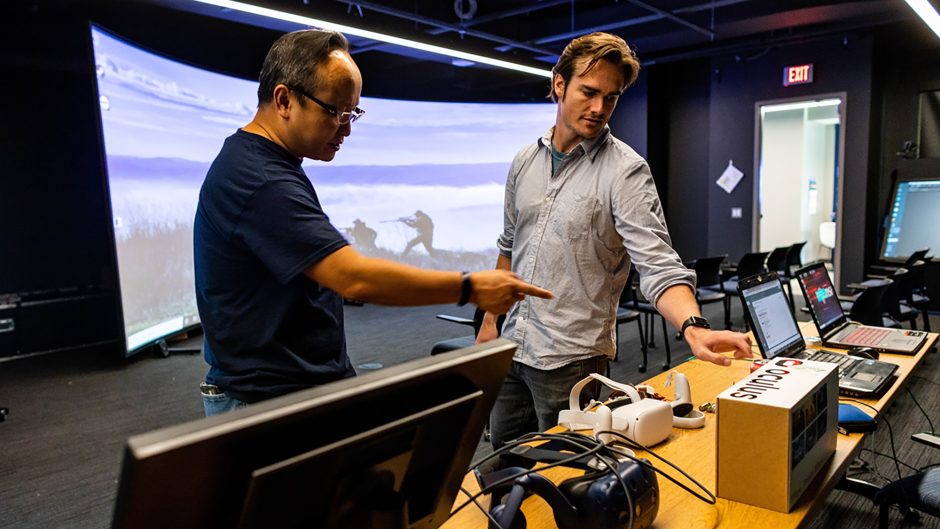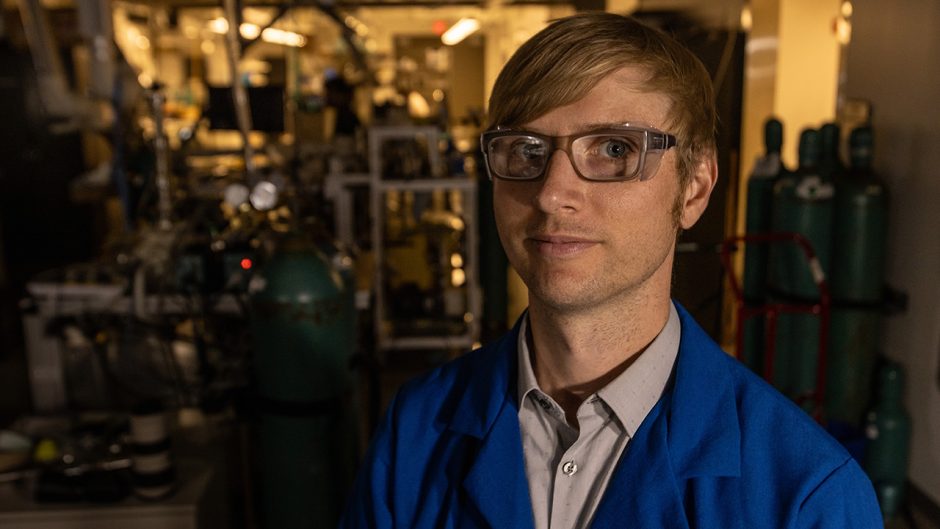
Two new studies from the University of Missouri School of Journalism found that using social media posts with testimonials is the best way to recruit these individuals for medical trials.
Nov. 30, 2022
Contact: Sara Diedrich, 573-882-3243, diedrichs@missouri.edu
Clinical trials are critical to the development and approval of medical treatments, whether those are drugs, vaccines or medical devices. It is challenging to recruit certain people for clinical trials for different reasons, and there are two groups who are of special interest in Missouri: Black Americans and people who live in rural areas. Access to health care is a dire problem for both groups of people.
Two new studies from the University of Missouri School of Journalism found that using social media posts with testimonials is the best way to recruit these individuals for medical trials — but with a few twists:
- Black Americans’ intentions to join clinical trials increased most when testimonials were shared by Black individuals and when those messages addressed psychological barriers to participation, such as distrust of physicians and researchers.
- Rural white men’s intentions to join clinical trials increased most when the messages included testimonials instead of leaving them out. Messages that talked about overcoming cognitive barriers, such as lack of knowledge about the value of clinical trials, also performed well among rural men.
“Medical researchers who want to recruit folks for their clinical trials need to understand the people who they are trying to recruit and really tailor those messages to reach the right people,” said Amanda Hinnant, associate professor at the Missouri School of Journalism and one of six authors of the study. “We hope to give those who are recruiting some tools they can use.”
The team of researchers conducted the studies to examine how information on social media can influence attitudes and behaviors related to clinical trial participation. The studies were funded by Washington University's Institute of Clinical & Translational Science and an MU Research Council Grant.
Study 1: Black American fears of clinical trials rooted in historical mistreatment
According to the first study, Black Americans account for 13.5% of the total population in the United States, but only 8% of the 32,000 people who participated in clinical trials for FDA-approved drugs in 2020 were Black. When compared to their white counterparts, racial and ethnic minority populations experience greater rates of disease and overall poorer health. Black Americans have a life-expectancy that is four years shorter than white Americans, and they are more likely to die from cardiovascular disease.
Ciera Kirkpatrick, an assistant professor of advertising and public relations at the University of Nebraska-Lincoln and former doctoral student at MU, said one of the reasons Black Americans have not participated in clinical trials in the past is a distrust of physicians and researchers due to historical mistreatment as well as concerns about a lack of control in the research process.
“In addition, there has been a lack of understanding about what happens in clinical trials and why they are important, which has stopped them from enrolling,” Kirkpatrick said. “We wanted to design a study that would allow us to look at Black Americans and how we can design messages focused on overcoming those barriers.”
The study involved 390 Black Americans between the ages of 18 and 62 who completed an online experiment involving social media posts. Fifty-nine percent of the participants were women. Social media posts that featured Black individuals sharing their own fears and misgivings about clinical trials had the greatest impact on participants’ willingness to participate in a clinical trial, Kirkpatrick said.
“[These results are] awesome, because if we can influence changes in terms of behaviors and intentions, well, that’s our ultimate goal,” she said.
Study 2: Rural white men’s low participation in clinical trials tied to mistrust in doctors
Despite efforts to promote participation in clinical trials, participation has been especially low among rural communities, which is especially grim for rural men, who have a lower life expectancy than urban men, rural women and urban women.
Sisi Hu, an assistant professor of advertising in the school of journalism and strategic media at the University of Arkansas and former doctoral student at MU, said rural white men are underrepresented in clinical trials for conditions that include obesity, arthritis, mental illness and pulmonary disease, which are among the top health concerns overall for rural residents.
“That’s why we decided to focus on this group for our second study,” Hu said. “We want to figure out how to encourage more rural men to participate in clinical trials to help researchers find ways to reduce the health problems they are facing.”
A total of 208 adult men living in rural areas completed the online experiment that involved social media posts about clinical trials.
Results found that participants expressed stronger intentions to join clinical trials after viewing social media posts that included testimonials vs. posts that excluded testimonials. Reactions toward messages with testimonials were especially favorable among men who don’t trust doctors. Lastly, messages about overcoming lack of information about clinical trials also scored well among rural men.
The team is currently working on a study of how TikTok videos could increase participation in clinical trials. The team also includes Sungkyoung Lee, an associate professor in the Missouri School of Journalism, Yoorim Hong, an MU doctoral candidate and Namyeon Lee, an assistant professor at the University of North Carolina at Pembroke.
“Overcoming Black Americans’ Psychological and Cognitive Barriers to Clinical Trial Participation: Effects of News Framing and Exemplars” was published in Health Communication.
“Improving rural White men’s attitudes toward clinical trial messaging and participation: Effects of framing, exemplars and trust” was published in Health Education Research.





